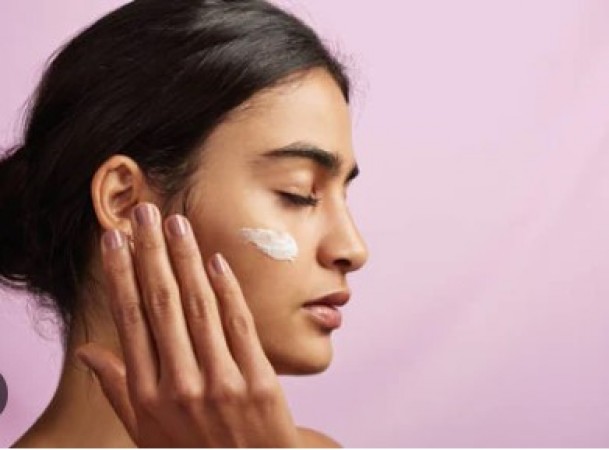
Oily skin, characterized by excessive sebum production, can be both a blessing and a curse. While it tends to retain moisture better and show fewer signs of aging, such as fine lines and wrinkles, it is also prone to enlarged pores, acne breakouts, and a persistent shiny appearance.
Why Moisturize Oily Skin?
Many individuals with oily skin mistakenly believe that moisturizing will exacerbate their condition. However, moisturizing is essential for all skin types, including oily skin. Without proper hydration, the skin may overcompensate by producing even more oil, leading to increased breakouts and a greasy complexion.
Choose the Right Moisturizer
Selecting the appropriate moisturizer is crucial for managing oily skin effectively. Look for oil-free or non-comedogenic formulas specifically designed for oily or acne-prone skin. These products are typically lightweight, free of pore-clogging ingredients, and help regulate oil production without adding extra shine.
Look for Key Ingredients
When shopping for a moisturizer for oily skin, pay attention to the ingredients list. Opt for products that contain hydrating ingredients like hyaluronic acid, glycerin, and ceramides. These humectants attract moisture to the skin without leaving a greasy residue, helping to maintain a healthy moisture balance.
Apply Sparingly
Less is often more when it comes to moisturizing oily skin. Applying too much product can overwhelm the skin and leave it feeling greasy. Start with a pea-sized amount of moisturizer and adjust as needed, focusing on areas that tend to be drier while using a lighter touch on oilier zones.
Cleanse Before Moisturizing
Properly cleansing the skin before applying moisturizer is essential, especially for those with oily skin. Choose a gentle, non-stripping cleanser formulated for oily or acne-prone skin to remove excess oil, dirt, and impurities without disrupting the skin's natural moisture barrier.
Use Moisturizer Strategically
Instead of applying moisturizer all over the face, consider targeting specific areas that tend to be drier, such as the cheeks or around the eyes. Use a lighter touch on oilier areas like the forehead, nose, and chin (also known as the T-zone) to avoid adding unnecessary shine.
Avoid Heavy Formulas
Thick, emollient moisturizers may feel too heavy on oily skin and can potentially clog pores, leading to breakouts. Opt for lightweight, oil-free formulas that absorb quickly into the skin without leaving a greasy or sticky residue.
Consider Gel-Based Formulas
Gel moisturizers are an excellent option for oily skin as they are lightweight, non-greasy, and absorb quickly. These water-based formulas provide hydration without adding extra oil, making them ideal for daily use, especially in warmer climates or during the summer months.
Don't Forget Sun Protection
Regardless of skin type, daily sun protection is essential for maintaining healthy skin and preventing premature aging. Choose a non-comedogenic sunscreen with broad-spectrum protection (SPF 30 or higher) and apply it after moisturizer in the morning. Look for lightweight, oil-free formulas that won't clog pores or feel heavy on the skin.
Opt for Mattifying Products
If excess shine is a concern, consider using moisturizers with mattifying properties or those specifically formulated to control oil production. These products help absorb excess oil throughout the day, leaving the skin with a matte finish without over-drying or stripping away essential moisture.
Moisturize Regularly
Consistency is key when it comes to skincare, including moisturizing oily skin. Establish a daily skincare routine that includes cleansing, moisturizing, and sun protection to keep the skin balanced, hydrated, and healthy over time.
Consider Adding Serums
In addition to moisturizer, incorporating serums into your skincare routine can provide additional benefits for oily skin. Look for serums formulated with ingredients like niacinamide, salicylic acid, or vitamin C, which can help control oil production, minimize the appearance of pores, and improve overall skin texture when used alongside a moisturizer.
Monitor Your Skin's Response
Pay attention to how your skin responds to different moisturizers and skincare products. What works for one person may not work for another, so it's essential to find products that suit your skin's unique needs and preferences. If you experience any irritation or breakouts, discontinue use and consult a dermatologist for personalized recommendations.
Consult a Dermatologist
If you're unsure about which moisturizer or skincare products are best for your oily skin, consider consulting a dermatologist or skincare professional. They can assess your skin type, concerns, and goals and provide personalized recommendations tailored to your individual needs. Moisturizing oily skin may seem counterintuitive, but it's essential for maintaining a healthy moisture balance and preventing issues like excessive oil production and breakouts. By choosing the right moisturizer, using it strategically, and incorporating other skincare products as needed, you can keep your oily skin looking and feeling its best.
Today people of this zodiac sign will be free from many problems, know how your horoscope is...